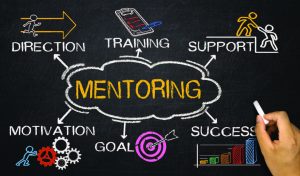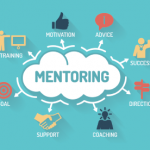 ATLANTA—The relationship between mentor and mentee can be powerful and last a lifetime. But a productive mentoring relationship is no simple thing, according to an expert at the 2019 ACR/ARP Annual Meeting. The roles of a good mentor range from spiritual advisor to truth teller to coach to therapist, said Antony Rosen, MBChB, rheumatology division director at Johns Hopkins Medicine, Baltimore.
ATLANTA—The relationship between mentor and mentee can be powerful and last a lifetime. But a productive mentoring relationship is no simple thing, according to an expert at the 2019 ACR/ARP Annual Meeting. The roles of a good mentor range from spiritual advisor to truth teller to coach to therapist, said Antony Rosen, MBChB, rheumatology division director at Johns Hopkins Medicine, Baltimore.
When looking for mentors, you have to seek out multiple people to fill these roles, said Dr. Rosen. He described 10 essential characteristics of good mentoring.
“The chances that one individual has all of these 10 attributes in abundance is very low. We have something that we’re going to be great at and other things we’re probably going to be bad at,” he said. “When you’re looking for mentors, you need to have teams of mentors.”
Below are the traits he described:
1. Inspire: “What I mean by inspire is not model, is not teach, but is to show a view of the world that the mentee sees in a way that guides their lives. Humans are drawn to narrative and story. Our most ancient wisdom is around story … You need to look for a mentor or a mentoring team that has a story that resonates with you,” Dr. Rosen said.
“Be sure that, when you go into an interaction with the person who’s going to be your mentor, you feel inspired,” he added.
2. Sculptor: A Japanese sculptor, Isamu Noguchi, said his job is not to impose something on an object, but to reveal it. “That, in my view, is a key part of what a mentor does,” Dr. Rosen said.
Sculpting involves shaving off rough edges, and the same is true for mentoring. But this can be uncomfortable, he noted. “The mentor-mentee relationship cannot be all roses.”
3. Coach: Lives and careers have trajectories that involve rises and plateaus. During the plateaus, we feel comfortable. It’s during the uncomfortable rises that we need a coach, Dr. Rosen said.
Many examples exist of people who have done really well in clinical medicine or in some kind of science, but if their life calls on them to do something for the next step that involves a different set of skills, they may feel vulnerable or incompetent. “It’s in those moments when we’re acquiring new skills and we haven’t yet acquired them that the coach part of being a mentor is really important,” Dr. Rosen said.



